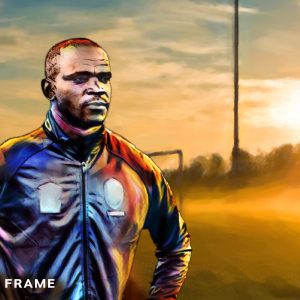Bielsa: A principled man in an unprincipled world
Charismatic coach Marcelo Bielsa has a paltry trophy return for a man regarded as footballing royalty. Why does he matter and why do some experts say he can save the beautiful game?
Author:
20 November 2020

It was a tweet that smacked of xenophobia and British exceptionalism, but in September 2020 it hardly came as a surprise. “If Bielsa is the genius his fawning acolytes among my old media mates believe, shouldn’t he have mastered a bit of English in 27 months?”
The question was asked by experienced football journalist and broadcaster Mick Dennis. His subject was Leeds United’s enigmatic Argentinian coach Marcelo Bielsa, a man who has surfed into the Premier League on a wave of hyperbole and mythology, a character comprised of so many tropes that he is scarcely believable. No one can be this idiosyncratic, this idealistic, this unquantifiable. Even in the circus of modern football, Bielsa stands out.
Everyone with an opinion on football has an opinion on Bielsa. They run the gamut, from viewing the 65-year-old from Rosario as the possible messiah who can steer the game away from its sordid destination to seeing him as an overhyped, overthinking tinkerer who serves more style than substance.

Not that he’s offering anyone an explanation. Bielsa famously does not give exclusive interviews, saying they are undemocratic and unfair. Not even renowned journalist Ezequiel Fernández Moores could convince Bielsa to break his rule, just once, for a sweeping documentary on the history of Argentinian football.
In this void of his own making, Bielsa has left room for everyone else to make of him what they will. He is a funhouse mirror, reflecting a distorted version of whatever views we may hold concerning football and the world around it. While Premier League rivals such as Pep Guardiola, José Mourinho and Jürgen Klopp play to the gallery, Bielsa is busying himself in the corner, seemingly oblivious to the noise around him.
Influential figure with a bare trophy cabinet
“Obsessive” is a word that circles Bielsa. In his first coaching job at the city university in Buenos Aires, he watched 3 000 players before picking a squad of 20. As a youth team coach with his hometown club, Newell’s Old Boys, he drove more than 5 000 miles across Argentina to scout potential recruits.
In 1997, while at Vélez Sársfield, he requested a computer with the capacity to take screen grabs of footage to prepare his players, reinventing the relationship between technology and coaching. When interviewing for the top job at Athletic Bilbao, he arrived with a colour-coded assessment of all the club’s matches over the previous season. During his audition at Leeds, he broke down the tactics and style of play of every team in the English Football League Championship.
“Having all that information doesn’t automatically make you win,” Bielsa admitted after his Athletic side succumbed to Guardiola’s Barcelona dream team in the 2012 Copa del Rey final, losing 3-0. Despite scrutinising all 63 games of his opponent’s previous matches, there was no stopping the tiki-taka of Lionel Messi and co.
Related article:
Indeed, Bielsa’s trophy cabinet after 30 years as a football manager is relatively bare. He’s won four domestic titles in club football – three in Argentina and the most recent Championship crown that earned Leeds promotion to the Premier League for the first time in 16 years – and two international honours, including gold at the 2004 Olympic Games in Athens.
The numbers alone do not point to greatness. They’re commendable, but they’re not what prompted Guardiola to label him “the best coach in the world”. Fellow Argentine Mauricio Pochettino called Bielsa his “football father”, adding, “We are a generation of coaches that were his disciples.” With such a modest trophy haul, what exactly is fuelling this narrative?
“He is the most intelligent person in English football today,” says Jonathan Wilson, The Guardian newspaper journalist and editor of The Blizzard quarterly publication. “As for the language thing, I’d rather he speaks in Spanish with a decent translator so he can better express his ideas.”
Wilson first took an interest in Bielsa while researching Inverting the Pyramid, his seminal book on the history of football tactics. Almost everyone he interviewed mentioned Bielsa’s influence on the game.
Related article:
“In the 1990s, he was doing things that no one else was doing that are now common practice among all football managers,” Wilson explains. “The relentless pressing, changing your approach to suit the opposition, creating vigorous man-to-man systems, involving players in your preparation, spending hours poring over analytics and tactics. He rewrote the script.”
Bielsa’s obsession has landed him in trouble. Ahead of a Championship match between Leeds and Derby County, managed at the time by Chelsea legend Frank Lampard, a member of Bielsa’s staff was caught with a pair of binoculars on public land, watching the opposition during a training session from over a fence.
The scandal was dubbed “Spygate” and was at first viewed through the prism of a culture war in English football. Before the discourse became truly nasty, Bielsa confessed that he had been spying on all opponents but that he felt he had done nothing wrong. In his quest to be transparent, he gave a lengthy press conference, providing exact details of Derby’s tactics.
“It was extraordinary,” Wilson wrote at the time. “Not so much for the data revealed but for the fact that he bothered.” Bielsa apologised for any offence caused while enhancing his legend as a principled man in an unprincipled world.

Bielsa’s politics
When he first arrived at Leeds, he learned that it took the average person three hours of work to earn enough money for a ticket to Elland Road Stadium. He then instructed his players to pick up litter for the same duration as a way of appreciating the effort loyal fans go through to watch them play. By reminding them of their privilege, Bielsa sought to reconnect them with supporters in an industry that has drifted away from its founding egalitarian principles.
There are other similar stories. Like the time Bielsa insisted on paying for his groceries at a family-run store while working in Chile, despite protestations from the owner. Or the time he bought a new car for Leeds’ Christmas raffle. In an important Championship match, Bielsa ordered his players to allow Aston Villa to score a goal unopposed to compensate for a goal Leeds scored after an opponent was struck down with a head injury. The game ended in a 1-1 draw.
“Would any other manager have done that?” asks Jon Mackenzie, a freelance writer and podcaster who is working on a book about Bielsa. “In football, there are so few people who are genuinely good. He’s one of them.”
Related article:
These anecdotes have led some to paint a bullseye around an already shot arrow. Could it be that the hyper-capitalist universe of the Premier League has an avowed socialist in its ranks?
Neither Wilson nor Mackenzie believe that to be the case, they say. Bielsa comes from a politicised family who were supporters of former Argentine president Juan Perón. His brother, Raphael, was kidnapped and tortured by the military junta in the 1970s and is now a member of the Justicialist Party, upholding the ideas of Peronism. But none of this makes either Bielsa a fist-in-the-air leftist.
“It’s easy to back engineer what you want to see with Bielsa,” says Mackenzie. “As someone who is naturally on the left wing, I’d love to embrace him as a political hero, but that would be too simplistic. I’d assume he is left-leaning, but I wonder if he has any room for much political thought with all the football that’s swirling in his consciousness.”
English football is peppered with left-leaning managers. Bill Shankly, the all-conquering Liverpool boss in the 1960s and 1970s, was a staunch Labour Party supporter and incorporated his socialist views into his management style, saying collectivism would always triumph over a collection of individuals.
Another was Howard Wilkinson, the last Leeds manager to win a first-division league title in 1992. He would regularly declare his support for mineworkers in his match-day notes and once took his players underground to observe what life was like in the shafts to cultivate an appreciation for their advantages.
Related article:
“In this sense, Bielsa is continuing a great tradition of Leeds managers,” says Anthony Clavane, a Leeds native and author of several books that chronicle the history of English football, including the acclaimed Promised Land: A Northern Love Story.
“As a club and as a city, we’re hated around the country and within Yorkshire. Nobody likes us and we don’t just not care, we wouldn’t have it any other way. That hate is grist to the mill, though Bielsa himself might not be comfortable with that. Through his footballing philosophy and the way he unapologetically goes about his work his own way, he has galvanised the city in a deep and meaningful way.
“He’s an outsider, but he has the devotion of the people. His oddness, his stubbornness, his idealism… these are seen as very Leeds-like qualities. It’s such a Leeds thing to chafe against the norm.”
Driven by guilt to entertain fans
That idealism was evident at the opening game of the Premier League season, in a 4-3 defeat at Liverpool. Most managers new to the league would have shown pragmatic caution against the champions. Bielsa’s men pressed high, hurled themselves into tackles and attacked like devotees of a zealous ideologue.
“He’s partly driven by guilt,” Wilson offers by way of explanation. “He believes he has a duty to the fans to provide entertaining football. As for his obsession over tactics and analysis, he’d feel guilty if he didn’t do everything he could to prepare for a match. He recognises that this guilt is almost part of his neurosis.
“There’s been some resistance to Bielsa in England. During the Spygate thing, there were some journalists who seemed overly keen to stick the knife in. He’s very real but also very weird. He’s hard to pigeonhole and for that reason, he’s not trusted by some sections of the English press. There’s something a little indulgent about Bielsa. He’s definitely seen as the hipster’s choice.”
Related article:
Beyond the tactics and tribalism, he represents something pure, almost childlike, in a sport that has become sanitised to the point that it can often resemble a bleached coral reef. Bielsa’s teams play at a frantic pace, often to the point of self-harm. His players regularly burn out from mental and physical exhaustion before the campaign is over. But they’d run through walls for him. Again and again, they charge into the teeth of the enemy, never relenting, always entertaining, forever distilling football to its purest form.
“I think he can save the game, I really do,” Clavane says. “I think he can restore the lost soul of English football through his integrity, his commitment to attractive football and maybe his humility as well.”
Unless a major investor transforms the transfer budget of Leeds, silverware is unlikely to arrive in West Yorkshire. But that’s not the only way we measure greatness, is it?





